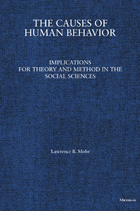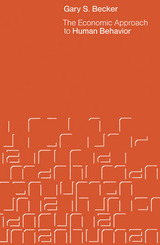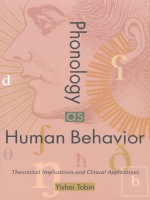3 books about Human Behavior

The Causes of Human Behavior
Implications for Theory and Method in the Social Sciences
Lawrence B. Mohr
University of Michigan Press, 1996
Acknowledging that though the disciplines are supposed to be cumulative, there is little in the way of accumulated, general theory, this work opens a dialogue about the appropriate means and ends of social research based in analysis of fundamental issues.
This book examines two root issues in the methodology of explanatory social research--the meaning of the idea of causation in social science and the question of the physiological mechanism that generates intentional behavior. Conclusions on these as well as on several derived problems emerge through the analysis. Among the latter, the analysis shows that neither universal nor probabilistic laws governing human behavior are possible, even within the positivist or empiricist traditions in which laws are a central feature. Instead, the analysis reveals a more modest view of what an explanatory social theory can be and do. In this view, the kind of theory that can be produced is basically the same in form and content across quantitative and qualitative research approaches, and similarly across different disciplines. The two streams of analysis are combined with resulting implications for large-sample, small-sample, and case study research design as well as for laws and theory.
Written for the practicing empirical researcher in political science and organization theory, whether quantitative or qualitative, the major issuesand findings are meant to hold identically, however, for history, sociology, and other social science disciplines.
Lawrence B. Mohr is Professor of Political Science and Public Policy, University of Michigan.
This book examines two root issues in the methodology of explanatory social research--the meaning of the idea of causation in social science and the question of the physiological mechanism that generates intentional behavior. Conclusions on these as well as on several derived problems emerge through the analysis. Among the latter, the analysis shows that neither universal nor probabilistic laws governing human behavior are possible, even within the positivist or empiricist traditions in which laws are a central feature. Instead, the analysis reveals a more modest view of what an explanatory social theory can be and do. In this view, the kind of theory that can be produced is basically the same in form and content across quantitative and qualitative research approaches, and similarly across different disciplines. The two streams of analysis are combined with resulting implications for large-sample, small-sample, and case study research design as well as for laws and theory.
Written for the practicing empirical researcher in political science and organization theory, whether quantitative or qualitative, the major issuesand findings are meant to hold identically, however, for history, sociology, and other social science disciplines.
Lawrence B. Mohr is Professor of Political Science and Public Policy, University of Michigan.
[more]

The Economic Approach to Human Behavior
Gary S. Becker
University of Chicago Press, 1976
Since his pioneering application of economic analysis to racial discrimination, Gary S. Becker has shown that an economic approach can provide a unified framework for understanding all human behavior. In a highly readable selection of essays Becker applies this approach to various aspects of human activity, including social interactions; crime and punishment; marriage, fertility, and the family; and "irrational" behavior.
"Becker's highly regarded work in economics is most notable in the imaginative application of 'the economic approach' to a surprising breadth of human activity. Becker's essays over the years have inevitably inspired a surge of research activity in testimony to the richness of his insights into human activities lying 'outside' the traditionally conceived economic markets. Perhaps no economist in our time has contributed more to expanding the area of interest to economists than Becker, and a number of these thought-provoking essays are collected in this book."—Choice
Gary Becker was awarded the Nobel Prize in Economic Science in 1992.
"Becker's highly regarded work in economics is most notable in the imaginative application of 'the economic approach' to a surprising breadth of human activity. Becker's essays over the years have inevitably inspired a surge of research activity in testimony to the richness of his insights into human activities lying 'outside' the traditionally conceived economic markets. Perhaps no economist in our time has contributed more to expanding the area of interest to economists than Becker, and a number of these thought-provoking essays are collected in this book."—Choice
Gary Becker was awarded the Nobel Prize in Economic Science in 1992.
[more]

Phonology as Human Behavior
Theoretical Implications and Clinical Applications
Yishai Tobin
Duke University Press, 1997
Phonology as Human Behavior brings work in human cognition, behavior, and communication to bear on the study of phonology—the theory of sound systems in language. Yishai Tobin extends the ideas of William Diver—an influential linguist whose investigations into phonology reflect the principle that language represents a constant search for maximum communication with minimal effort—as a part of a new theory of phonology as human behavior. Showing the far-reaching psycho- and sociolinguistic utility of this theory, Tobin demonstrates its applicability to the teaching of phonetics, text analysis, and the theory of language acquisition.
Tobin describes the methodological connection between phonological theory and phonetics by way of a comprehensive and insightful survey of phonology’s controversial role in twentieth-century linguistics. He reviews the work of Saussure, Jakobson, Troubetzkoy, Martinet, Zipf, and Diver, among others, and discusses issues in distributional phonology through analyses of English, Italian, Latin, Hebrew, and Yiddish. Using his theory to explain various functional and pathological speech disorders, Tobin examines a wide range of deviant speech processes in aphasia, the speech of the hearing-impaired, and other syndromes of organic origin. Phonology as Human Behavior provides a unique set of principles connecting the phylogeny, ontogeny, and pathology of sound systems in human language.
Tobin describes the methodological connection between phonological theory and phonetics by way of a comprehensive and insightful survey of phonology’s controversial role in twentieth-century linguistics. He reviews the work of Saussure, Jakobson, Troubetzkoy, Martinet, Zipf, and Diver, among others, and discusses issues in distributional phonology through analyses of English, Italian, Latin, Hebrew, and Yiddish. Using his theory to explain various functional and pathological speech disorders, Tobin examines a wide range of deviant speech processes in aphasia, the speech of the hearing-impaired, and other syndromes of organic origin. Phonology as Human Behavior provides a unique set of principles connecting the phylogeny, ontogeny, and pathology of sound systems in human language.
[more]
READERS
Browse our collection.
PUBLISHERS
See BiblioVault's publisher services.
STUDENT SERVICES
Files for college accessibility offices.
UChicago Accessibility Resources
home | accessibility | search | about | contact us
BiblioVault ® 2001 - 2024
The University of Chicago Press









